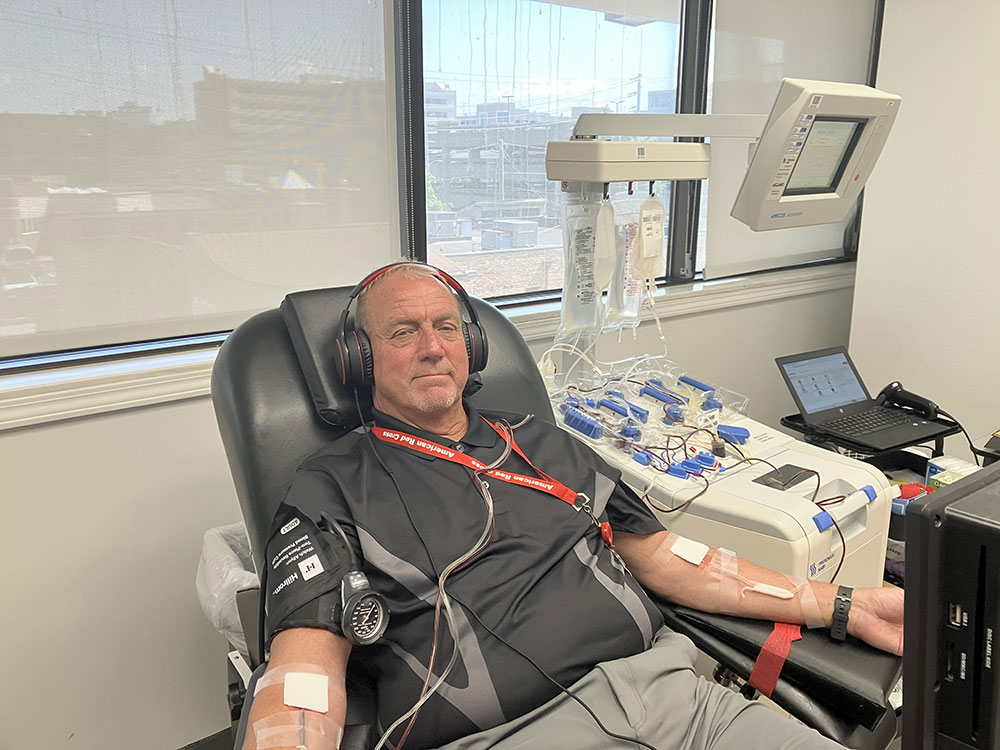
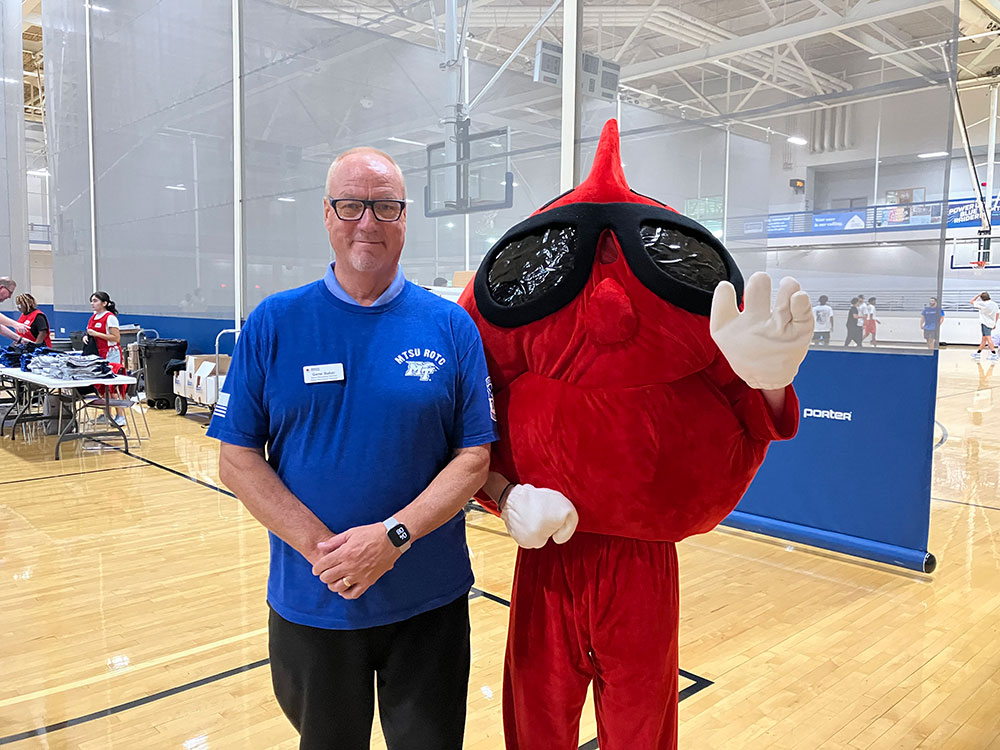
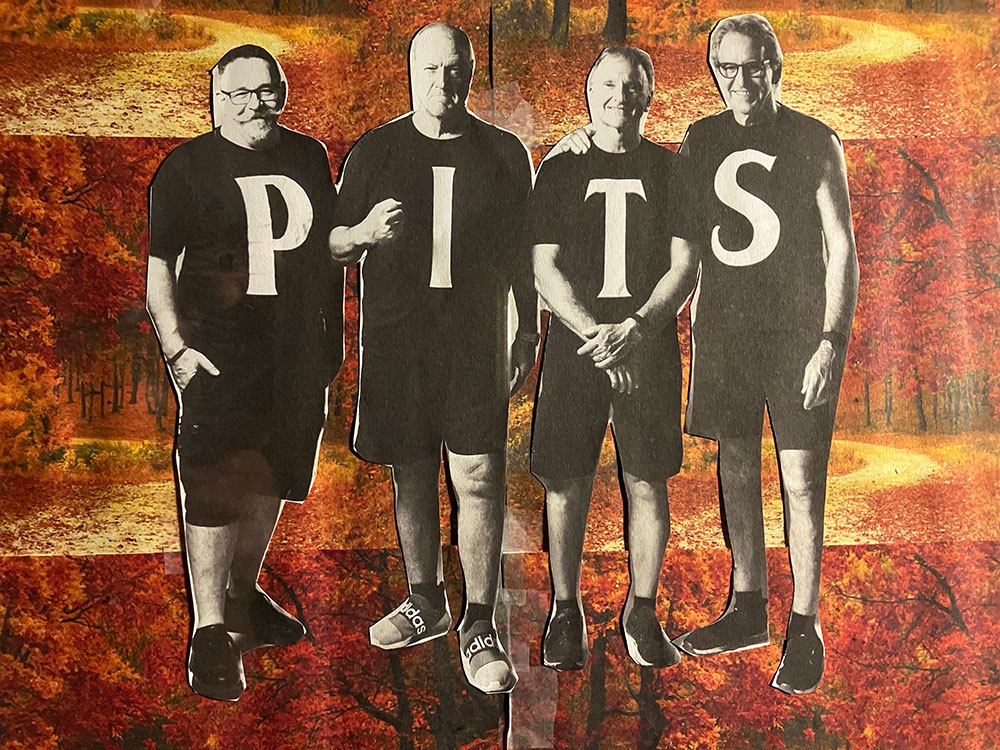
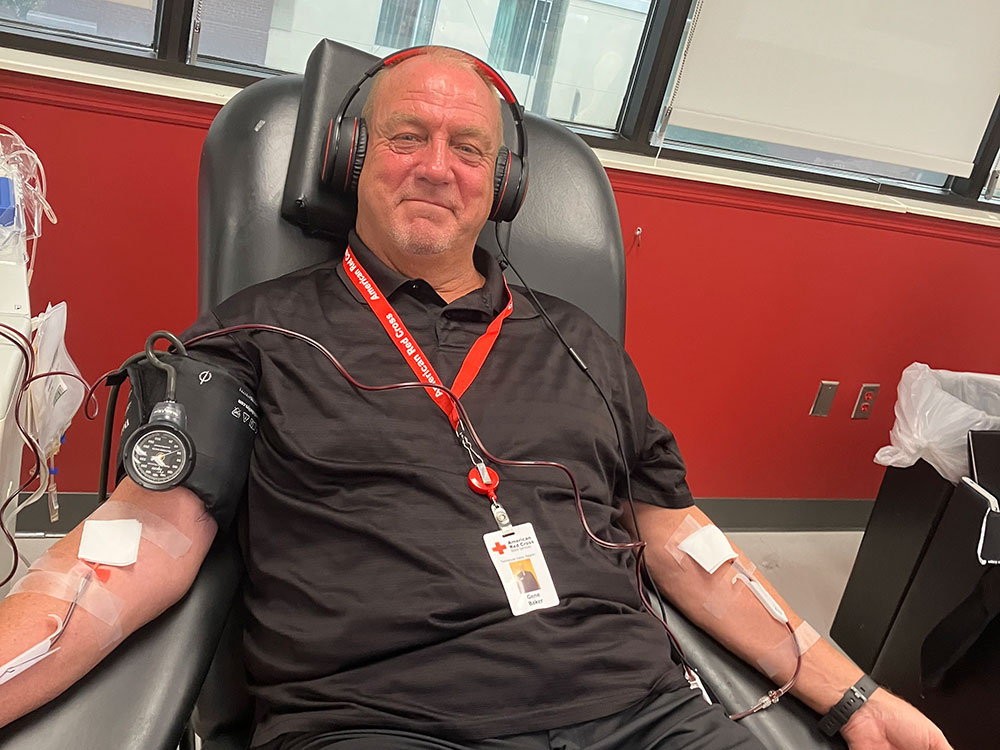
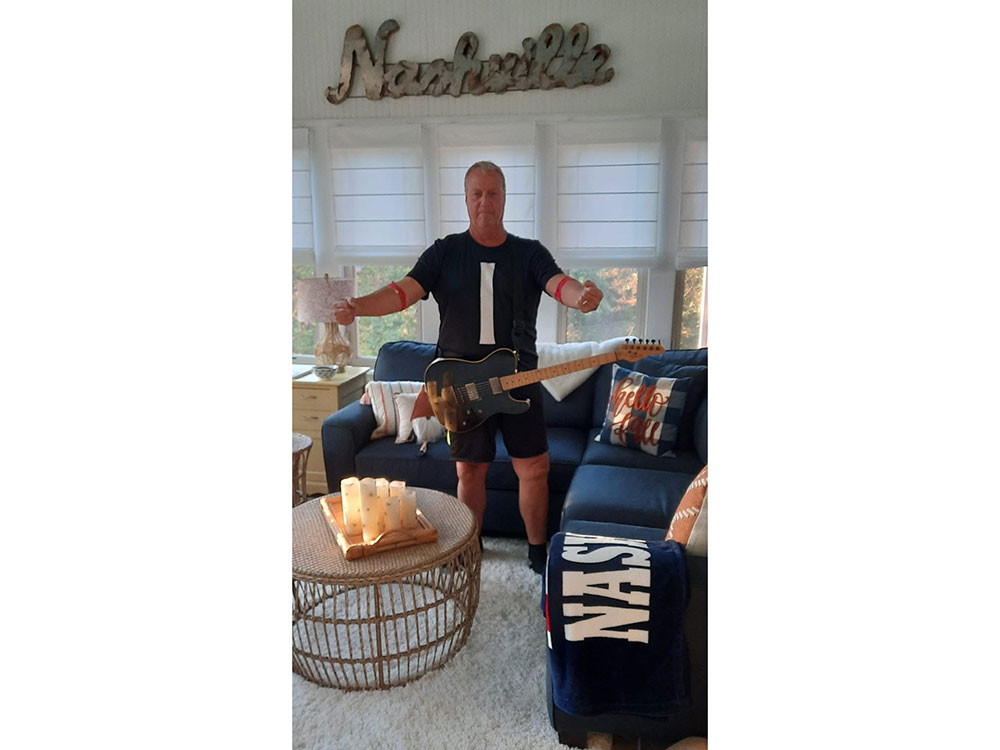
By Presley Allen
One man, 13 years and a whopping 409 units of blood platelets donated.
“I’m giving back, I'm helping the [American] Red Cross engine, but more importantly, I'm saving lives,” Senior Account Manager for the American Red Cross of Tennessee Gene Baker said.
Baker has been with the American Red Cross since 2012, and outside of work is a dedicated musician, having been a part of an Evansville, Indiana-based cover band known as “The Pits” for 42 years.
His blood donation journey began when he took a position with the Red Cross and gave blood for the first time at age 50.
“I started [donating] late in life. Why? Because nobody ever asked me to,” he says. “I donated blood a few times, then I thought I could catch up by donating platelets.”
Platelets are cells in your blood that form clots and can stop bleeding. They are vital to surviving and fighting cancer, chronic diseases and traumatic injuries. In some cases, one platelet donation can provide for more than one patient and a single person can donate platelets up to 24 times a year.
Both arms are used for platelet donations: one for drawing blood and extracting platelets using a machine, and the other for returning the remaining blood components.
Donating platelets takes around 3 hours from start to finish, a process that is a different experience from donating at an event such as a blood drive, which takes less than an hour, according to Baker.
The thought of sitting with a needle in the arm, let alone for 3 hours, seems a bit daunting; especially for those who fear blood or needles. So why not ask the man who has donated hundreds of platelets what he thought may ease these fears.
“Think about the fear on the other end of the donation and put it into perspective,” Baker said. “That hour or less than an hour it’s going to take you doesn’t cost anything.”
When it comes down to the wire, blood donation is about saving lives; a fact that seems obvious but is often clouded by fears.
Baker has also found that distractions such as watching a movie, reading a book or bringing a friend for moral support tend to calm the nerves during the process.
“At high school drives, we have students who stand by their nervous young friends and get ‘em through it,” Baker said. “99.9% of the time when they’re done [they say] ‘That was nothing, I did a great thing.’”
More information on donating blood and hours at the donation center can be found here.
Support all the urgent humanitarian needs of the American Red Cross.
Find a drive and schedule a blood donation appointment today.
Your time and talent can make a real difference in people’s lives. Discover the role that's right for you and join us today!